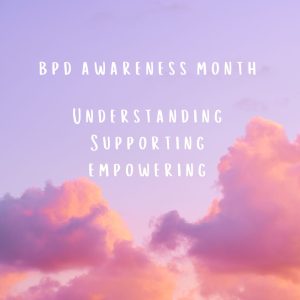I know that I have two options, I can either accept a situation or change it (well, I can also choose to stay miserable, but I’d rather not take that route)! If I can’t change the situation, then I will either use mindfulness or distress tolerance skills (see image). If the situation can be changed, then I’ll use emotion regulation or interpersonal effectiveness skills. I’ve already talked about radical acceptance, self-soothing (which is distress tolerance), so for today let’s go over the things we can do to change a situation.
In the emotion regulation skills, we have PLEASE, building mastery, building positive experiences and opposite action. I’d like to go over how using PLEASE and building mastery have been useful in my life.
PL (treat a physical illness): I’m a hypochondriac. The second that I get a slight headache, an ache in my body or any other unexpected sensation I lose my mind. I’ll start to feel anxious and will search everything I can about that sensation on the internet. I’m not allowed to do that anymore, to say the least. I have a rule when it comes to illness, I can see a doctor once for each issue (unless I’m referred to a specialist). My therapist, very wisely, explained to me that if the illness is getting better, then it was probably nothing serious in the first place.
E (balanced eating): If I don’t eat or am dehydrated, I’ll start feeling anxious and I’ll be more prone to dissociating. It is essential that I eat and drink water throughout the day, avoiding sugar/caffeine as much as I can.
A (avoid mood altering drugs): Well, this one is a given. Drugs and alcohol can exacerbate symptoms of mental illness (even though it can feel like its helping in that moment).
S (sleep): I try to sleep a minimum of 8 hours a night. If I don’t sleep, I can’t function during the day. I know many people who do not sleep close to 8 hours a night and it might not even be necessary for them to sleep that much, everyone has an amount they require to function. My husband, for example, only needs about 4-6 hours of sleep and every once and awhile he’ll sleep in to recharge.
E (building mastery): I like to do things that make me feel accomplished. Volunteering is important to me, so is creating art – there are many things that we can do in a day to build mastery that can lead to accomplishing important goals. It’s essential to start small, since I’ll feel overwhelmed if I have too much on my plate. For example, I’m applying for my Master’s degree and every day I prepare a different document, slowly arriving at a completed application (better than doing everything last minute, no?)
Doing the PLEASE skills for me means making sure that I’m not vulnerable to negative emotions. There isn’t a day that I don’t use PLEASE and I know that if I start slacking, I start to feel bad and when I feel bad I don’t want to work on my skills… thus starting a cycle that’s hard to get out of!
Please take care of yourself, by taking care of your body and accomplishing small goals, by using your PLEASE skills.




